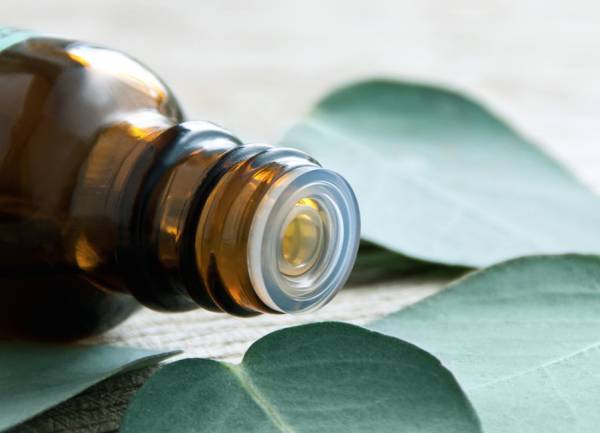There is something about nature that we inherently love. We crave nature if we spend too much time in the city. Well, hopefully you do, because if you’re disconnected from the natural world, you are sabotaging your precious gains and stressing yourself out.
How is this possible and what does the science say about the benefits of nature? Is the forest better than going to your local green patch of grass? Turns out the forest provides some key aromatic compounds that have the ability to reduce your stress hormones and boost your immune system.
Science and Nature
In a new study published in Environmental Health and Preventive Medicine, researchers took 420 subjects and distributed them across 35 different forests throughout Japan. A control group sat in an urban area. Those sitting in the natural surroundings were found to experience the following:
- 12.4% decrease in cortisol
- 7.0% decrease in sympathetic (fight-or-flight) nervous activity
- 1.4% decrease in systolic blood pressure
- 5.8% decrease in heart rate
It was also noted that parasympathetic nervous activity was enhanced by 55% and immune function as measured by the natural killer cell activity increased by 56% and maintained a 23% boost even after a month back in the city. So, a once-a-month trip to the forest is the minimum dose necessary to keep your nervous system healthy, your cortisol levels normalized, and your immune system strong.
“Working out five days a week at high intensity may be fun for you, but if you’re not balancing your “go-go-go” with a healthy dose of rest and relaxation, your results will be cut short.”
In a world of overtraining and fitness fanatics, we forget that cortisol in excess is catabolic. Working out five days a week at high intensity may be fun for you, but if you’re not balancing your “go-go-go” with a healthy dose of rest and relaxation, your results will be cut short. We have forgotten and even lost the ability to engage the rest and digest mode of our nervous system. Yet, we are designed to be in this relaxed state the majority of the time.
How Cortisol and DHEA Work
Cortisol and DHEA are two steroid hormones that work in a relative balance to allow you to build muscle, recover from exercise, and face the world with vitality. The optimal range of cortisol to DHEA is 6 to 1 according to my colleague and hormone expert Dr. Justin Marchegiani. DHEA is the anti-cortisol hormone. It opposes the effects of cortisol and is commonly used in anti-aging and bodybuilding supplements. This hormone plays a key role in supporting exercise performance and muscle gain.
It’s when we train too often and too intensely or simply don’t live a lifestyle that encourages rest and recovery that this balance of hormones gets thrown off. Muscle gains become impossible to achieve and may even be reversed. I personally lost about twenty pounds over a year due to excess stress I left unmanaged. Of course, under-eating and not training enough from “being too busy” were variables to consider, too. But the symptoms of low cortisol, such as low libido, irritability, and general malaise, were evident and had to be addressed.

If your diet and training seems to be in check, but you’re stressed out and can’t get results, the balance of DHEA-to-cortisol is a probable culprit. In a study looking at the impact of DHEA on training, it was found that muscle soreness was decreased on days three and six of supplementation compared to a placebo group. (This isn’t an article on the importance of DHEA, but it’s helpful to understand how important this hormone is to your exercise function and recovery.)
If you’re too stressed out and are forgoing stress management via forest walking, taking an Epsom salt bath, doing yoga or practicing meditation, then you are shortchanging your results. This isn’t opinion. This is the way the body is designed. The modern human is like a semi-truck with bicycle brakes – so driven to conquer the world and “crush it” that we charge ahead with loud music, coffee, and other stimulants until we hit a brick wall, crash and burn.
What If You Can’t Go to the Forest?
The forests cover a large percentage of the planet so there’s probably one you can visit within a relatively short drive. If you simply don’t enjoy the outdoors or can’t make it to a forest, you’ll be happy to hear that an indoor room experiment using wood smells, touching wood, and listening to sounds of the forest was enough to decrease blood pressure and pulse rate.
“It’s when we train too often and too intensely or simply don’t live a lifestyle that encourages rest and recovery that this balance of hormones gets thrown off.”
While it may not be as pleasurable as the real thing, loading a forest sound montage on YouTube or by using an app like Relax Melodies should be part of your recovery protocol. Of course, the BCAA and protein content of your post-workout shake is important, but there is hope for this new form of medicine that has a much longer history with humans than something that comes out of a tub.
Are There Other Ways to Use Nature as Medicine?
Essential oils are extracts of plants, barks, flowers, and other natural materials. They have been used for thousands of years and were even found in King Tut’s tomb. They were as valuable, and in some cases more valuable, than gold or other precious metals due to their remarkable health benefits.
In a study published in the Journal of Alternative and Complimentary Medicine, a group of fourteen people were assigned a personal inhaler filled with a mix of peppermint, basil, and helichrysum essential oils. The study was designed to test the effectiveness against moderate burnout. The researchers found that compared to the control group, the aromatherapy group had a significant reduction in their mental fatigue and burnout scores.

You can keep vials of essential oils in your pocket, purse, backpack, or whatever is convenient for you. The most important thing is that you actually use them. I bring a bottle of peppermint and eucalyptus oil with me when I’m about to go on stage for a speaking gig. Just one breath with these oils on my hands is enough to increase mental clarity focus and induce relaxation. This is the perfect combination to take control of a situation where you may be under pressure or in a stressful situation.
You’re Equipped for Life
While others may break under pressure, your new secret tools can be just what you need to calm your nervous system and prevent your heart from jumping out of your chest next time you’re put on the spot to perform. It’s a scientific fact.
So, find a way to get to the forest – or to bring the forest to you.
Read more about the benefits of lower stress:
- Hack Your Stress Before It Hacks You
- Why and How You Absolutely Must Manage Your Cortisol
- Outdoor Exercise Beneficial to Mood and Self-Esteem
- What’s New on Breaking Muscle Today
References:
1. Tsunetsugu, Yuko, Bum-Jin Park, and Yoshifumi Miyazaki. “Trends in Research Related to “Shinrin-yoku” (taking in the Forest Atmosphere or Forest Bathing) in Japan.” Environmental Health and Preventive Medicine, 2014, 27-37. Accessed February 18, 2015. https://pubmed.ncbi.nlm.nih.gov/24858508/.
2.Liao, Yi-Hung, Kun-Fu Liao, Chung-Lan Kao, Chung-Yu Chen, Chih-Yang Huang, Wei-Hsiang Chang, John L. Ivy, Jeffrey R. Bernard, Shin-Da Lee, and Chia-Hua Kuo. “Effect of Dehydroepiandrosterone Administration on Recovery from Mix-type Exercise Training-induced Muscle Damage.” European Journal of Applied Physiology, 2013, 99-107. Accessed February 18, 2015. https://pubmed.ncbi.nlm.nih.gov/22588361/.
3. Varney, Elizabeth, and Jane Buckle. “Effect of Inhaled Essential Oils on Mental Exhaustion and Moderate Burnout: A Small Pilot Study.” The Journal of Alternative and Complementary Medicine, 2013, 69-71. Accessed February 18, 2015. http://www.ncbi.nlm.nih.gov/pubmed/23140115.
Photos courtesy of Shutterstock.






